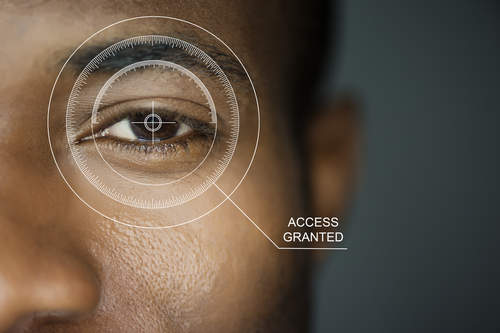
Facebanx, a division of OhHi Technology, believe facial recognition is the "holy grail" in combating fraud in retail banking around the world and with the advances in recent years of consumer electronics it’s never been easier to verify your identity with a camera.
With a number of banks around the world in talks over the software, which works on PCs, smartphones and tablets, the company claim the new technology will dramatically reduce fraud and ID theft in the financial services sector.

Access deeper industry intelligence
Experience unmatched clarity with a single platform that combines unique data, AI, and human expertise.
Matthew Silverstone, CEO of Facebanx, tells RBI: "Ideally when people open an account they’ll have their picture snapped by the cashier, which will verify them. Once the bank has got the face it can be easily used as a form of additional security once they login to their account online."
Some organisations are considering the extra layer of security only when their customers make larger online transactions, when the transaction is over $10,000 for example.
Silverstone says: "The thing about facial recognition is that it’s very simple. We take a picture of your face and compare it against another picture. If it’s a match then you won’t even know that it has happened."
The Facebanx system is semi-automated. The Facebanx automated system will flag up the suspected fraud, which then goes through to the customer services department which can initiate a second verification.

US Tariffs are shifting - will you react or anticipate?
Don’t let policy changes catch you off guard. Stay proactive with real-time data and expert analysis.
By GlobalDataSilverstone adds: "Automated identification is far more secure and reliable than manual identification. If the computer doesn’t recognise you then another person certainly won’t be able to recognise you."
The Facebanx facial recognition technology has been found by their internal testing to be 99% accurate, in standard lighting conditions and is already used in regularly by the public in airports around the world.
Steve Cook, director of business development at Facebanx, tells RBI: "Our technology uses the same algorithms as they do at passport control and, we feel, that because of this people have become more used to their image scanned electronically."
"While it will have a dramatic effect on banking fraud, our technology won’t stop fraud completely. But it will give banks a powerful weapon in combating account take over and multiple accounts."
Professor Mark Button, director of centre for counter fraud studies, says: "Counter fraud professionals are always looking for the ‘holy grail’ in the fight against identity fraud. Facebanx is an exciting new development and a product which could be one step closer to such a solution."
Biometrics have been around in the consumer market for years. Many smartphones now come with the option to use voice or facial recognition to access the device. The difference in Facebanx’s proposition is that it will compare your image to those in their database to make sure you’re not committing multiple fraud.
Silverstone says: "We can stop multiple frauds from taking place, not one off, but multiple frauds online, instantly."
Facebanx adds a further layer in that if your account does get defrauded then it can be recovered quicker and more easily with facial recognition technology.
Cook says: "You just need to walk into your branch and they can confirm you are who you say you are. You don’t have the same issues of proof of address and so on that currently exists."
According to the Financial Fraud Action UK (FFAUK) in 2012 online banking fraud losses totalled £40m ($60m); a 12% increase compared with losses in 2011.
This compares with the latest figures published by the FFAUK which indicate that total fraud losses on UK cards increased to £388m in 2012, a 14% increase compared with losses in 2011.
Telephone banking losses for 2012 were found by the FFAUK to have fallen to £12.6m, a decrease of 25% on the previous year.
With telephone banking fraud on a steep decline, online fraud looks set to continue to rise, with increased cost to the bank and facial recognition technology could be the thing to keep that cost low.
Implementing this technology to the much costlier card market could prove a much tougher challenge.







